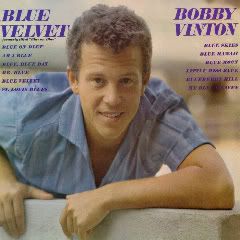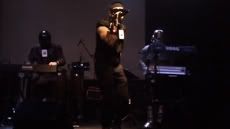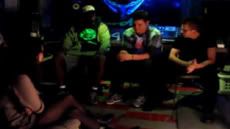
Like many easy listening artists of his time, there were only a handful of tracks Bobby Vinton could claim for his own. Ironically enough, the one song on this record that was actually written by Vinton himself, "Little Miss Blue," received little to no commercial success. His chart topping hits remained as the iconic "Blue Velvet" with "Blue on Blue" right on its heels, both of which played as candidates for the title of his soon to be best selling album. After being renamed Blue Velvet, this chart dominating record permanently engraved Bobby Vinton's name among the long and exclusive list of great vocalists. The remainder of the album is a diverse collection of jazz and pop covers that Vinton so willfully adapted to complete the album's blue concept. Therefore, every single track on the record has something to do with the color blue. Whether it is if Vinton himself feels like "Mr. Blue," or if he feels optimistic enough to invite you to his "Blue Heaven;" both the calming effects of Bobby's soothing, timeless voice and the color blue have a chilling inducement on the soul; the effect is almost romantic in a way.
After the success of Blue Velvet, Vinton's career was put on the back burner, although, his material continued to flourish among the Top 40. David Lynch titled his 1987 film "Blue Velvet" after the song, bringing a small wave of interest back to Vinton's music. Later on, his tracks were used in commercials and his voice was once again borrowed for something few artists can pull off with dignity: a Christmas album. He continued to release new records, but there has yet to be any to match up with Blue Velvet's success. Bobby Vinton was merely part of the curse. It's a curse where nothing you create outside of your peak years will ever overshadow your best selling material. But the older material always wins, doesn't it?

















good call! hadn't seen a new post in a while, glad you're back...
ReplyDelete-edo
knowyourconjurer.blogspot.com